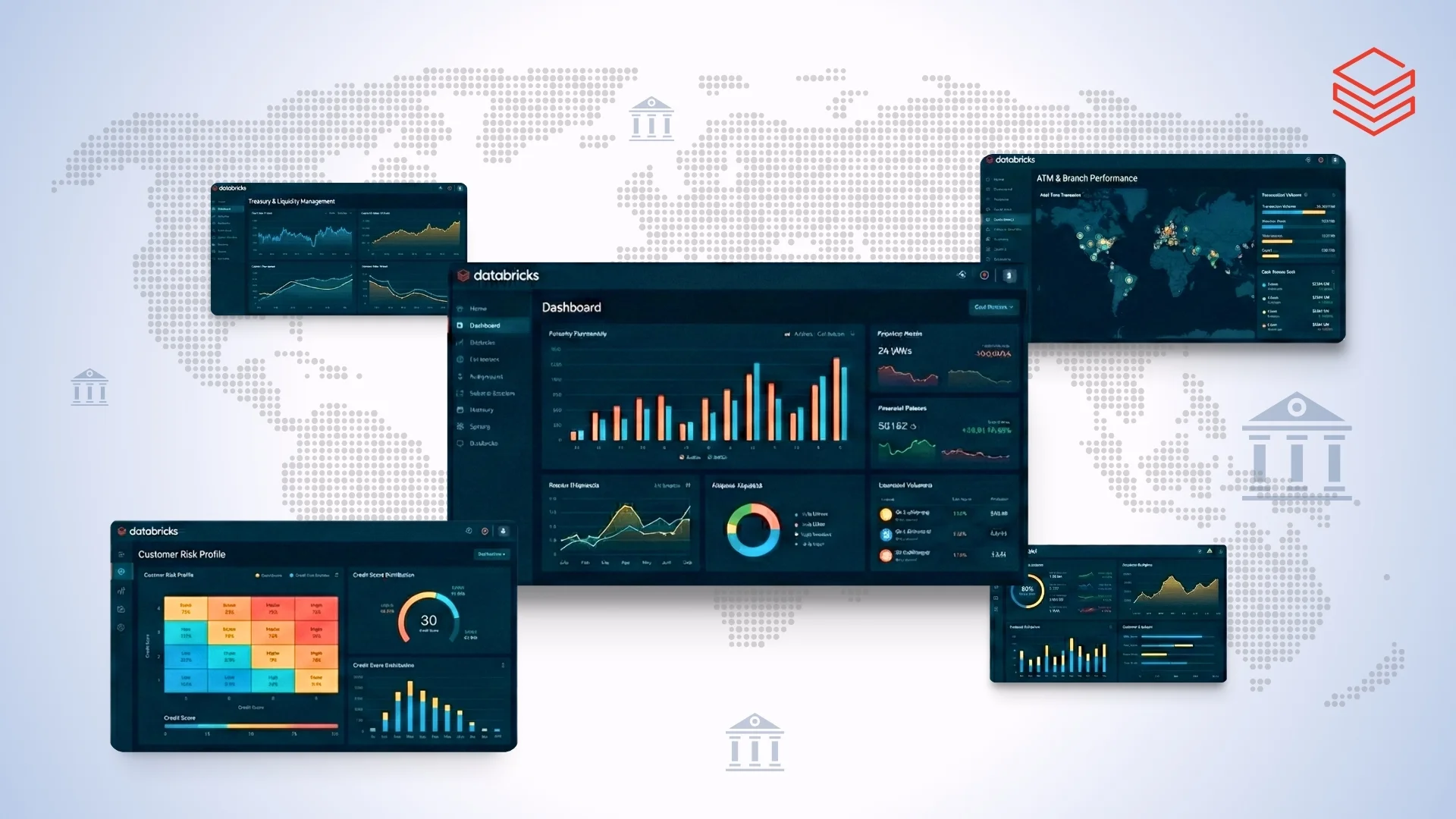Introduction
The paradigm shift towards cloud computing is poised to revolutionize the landscape of IT services in the foreseeable future. Enterprises are increasingly adopting cloud services as they shift their focus towards digital transformation and adopt agile software development models. In today’s digital age, the cloud has become an essential tool for a growing number of businesses and organizations across various industries. Selecting a cloud provider is a crucial decision that typically demands a multifaceted approach. When it comes to selecting a cloud provider, it is crucial to take into account various security risks and pose a series of inquiries that will aid in determining the optimal fit for your enterprise. Establishing a robust analytical framework is crucial to this undertaking.
The growing trend of outsourcing IT systems is prompting businesses to reassess their priorities in order to secure sustained success. Unfortunately, there is no universally accepted path for evaluating cloud service providers, and as expected, no two providers are indistinguishable. When it comes to selecting a cloud computing provider, there are several market leaders to consider, including Amazon Web Services (AWS), Microsoft Azure, and Google Cloud Platform (GCP). However, there are also smaller, specialized companies that focus on specific services. Given the multitude of options that vary in distinct ways, it can be a daunting task to identify the most suitable one. The primary objective is to seek out a competent cloud service provider (CSP) that can efficiently manage the cloud infrastructure, thereby enabling you to concentrate your efforts and resources on developing applications and managing data. Given the plethora of cloud providers available, what is the optimal methodology for selecting the most suitable option? The solution lies in a well-defined and carefully executed process of selection and procurement that is tailored to suit your individual requirements.
Table of Contents
- Introduction
- What is a cloud service provider?
- What are some examples of cloud service providers?
- Why use a cloud service provider?
- Choosing the right cloud service provider for your business
- Cloud service type
- Company profile
- Technologies & services roadmap
- Licenses, certifications, and standards
- Partnerships and integrations
- Reliability and performance
- Migration Support, Vendor Lock-in, & Exit Planning
- Disaster Recovery Strategy
- Conclusion
What is a cloud service provider?
A cloud service provider refers to a third-party organization that provides on-demand cloud-based solutions such as platforms, infrastructures, applications, computing power, or storage services. These cloud service providers establish public clouds, manage private clouds, and offer on-demand cloud computing components (also known as cloud computing services). Cloud services are a cost-effective solution for businesses, as they only have to pay for the amount of services they require based on their specific demands.
In addition to the pay-per-use pricing model, cloud service providers offer a plethora of advantages to businesses. One of the key benefits is the ability to scale up or down as needed without being constrained by the physical limitations of on-premises servers. Additionally, cloud providers offer reliable data centers with multiple redundancies, ensuring high uptime, seamless operations, and data accessibility. Moreover, cloud providers also allow businesses to customize their servers’ configurations to suit their unique preferences. This level of flexibility ensures that businesses can tailor their infrastructure to meet their specific needs. Additionally, the responsive load balancing offered by cloud providers enables businesses to respond quickly and efficiently to changing demands.
What are some examples of cloud service providers?
The market for cloud service providers (CSPs) encompasses a diverse range of providers, varying in size and structure. The established leaders in the realm of cloud computing are commonly referred to as the big three, namely Google Cloud, Microsoft Azure, and Amazon Web Services (AWS). In addition to major cloud service providers, there are a variety of smaller or specialized players in the market. These include IBM, Alibaba, Oracle, Red Hat, DigitalOcean, and Rackspace, among others, who also offer cloud services to customers.
Furthermore, several other cloud services include cloud-based data storage services such as Dropbox and Google Drive, web-based email providers such as Gmail and Hotmail, instant messaging platforms such as Slack, Skype, and Microsoft Teams and media streaming platforms such as Netflix and Amazon Prime.
More and more businesses are deciding to use a variety of cloud service providers (CSPs) to meet their unique needs. The majority of the time, organizations may select the best cloud capabilities for their specific use cases by working with numerous cloud providers. Different providers may specialize in a variety of fields, such as data analytics and artificial intelligence, or they may offer greater support for legacy infrastructures or broader compute possibilities.
Why use a cloud service provider?
In cases where both hardware and software are located on-premises, the responsibility of managing, updating, and replacing each component falls solely on the business that owns it. Cloud service providers offer comprehensive solutions that encompass various aspects such as device-network interactions, server management, and data transportation between wireless devices through operating systems and downloaded applications. Without these services, such activities would require manual control and monitoring. By utilizing a service from a cloud service provider, you can forego the need to purchase and maintain your own hardware and instead access it through a service provider on a subscription basis.
Many businesses are opting to move their services and infrastructure to the cloud for a multitude of reasons. Cloud service providers (CSPs) provide a cost-effective solution for supporting a company’s infrastructure and managing various services. Cloud service providers provide efficient and speedy deployment of applications and services, reduce the time spent on marketing services, and offer enhanced compliance with industry regulations and standards.
Cloud services can be used for a variety of purposes, including application development and deployment. With cloud services, a larger customer base can be supported at no additional expense. The cloud can also be used as a solution for disaster recovery. A cloud backup of on-premises services and infrastructure can be created and implemented in the event that an on-premises data center experiences interruptions. Many organizations also use the cloud to comply with industry standards and regulations. Since so many industries utilize cloud service providers, they must adhere to the most common regulations encountered by businesses, such as HIPAA and FIPS.
Choosing the right cloud service provider for your business
With so many cloud service providers available on the market, it is essential to evaluate how your company’s internal objectives will be positively impacted by implementing cloud-based solutions. It is important to note that not all organizations require a comprehensive range of products, just as not all enterprises can operate at their best with only a limited number of services. To identify the most suitable cloud service provider for an organization, it is essential to ensure that its financial, management, security, and operational objectives are in sync with the services provided by the cloud service provider.
Cloud service type
To determine the appropriate cloud solution for your needs, the initial step is to consider the type of cloud that would be most suitable. The cloud computing landscape is comprised of three distinct types of clouds: public, private, and hybrid. So, which kind of cloud are you looking for? If your organization is not a large enterprise, it is likely that you are seeking a public cloud solution. In many cases, a multi-cloud and hybrid cloud strategy is necessary for larger enterprises.
The deployment of the cloud for managing enterprise workloads can be determined by the level of flexibility, control, and management required. Cloud computing offers three primary service models: Infrastructure as a Service (IaaS), Platform as a Service (PaaS), and Software as a Service (SaaS). It’s worth noting that not all businesses require every service available, and it’s important to consider the advantages and disadvantages of each cloud provider. After determining the specific type of cloud that meets your requirements, it is advisable to explore different cloud service providers and evaluate which one best aligns with your needs.
Company profile
When considering partnering with a company, it is highly recommended to prioritize those with a well-established reputation and a proven track record of stability. It is crucial to ensure that the company has maintained a clean legal record and has not encountered any data breaches in the past. By selecting a trustworthy and reliable company, you can be rest assured that your business interests will be safeguarded and your partnership will be built on a solid foundation of trust and integrity. In addition, it is imperative that the CSP maintain a sound financial standing and be led by competent and seasoned executives.
Technologies & services roadmap
It is important to ensure that the platform and preferred technologies of the provider are in sync with your current environment and support your cloud objectives. Are the cloud architectures, standards, and services offered by the provider compatible with your workloads and management preferences? It is important to evaluate the extent of re-coding or customization required to ensure that your workloads are compatible with the platforms you are considering.
Numerous service providers provide all-inclusive migration services and extend support even during the evaluation and strategizing stages. It is imperative to have a comprehensive comprehension of the available support and align it with the project tasks. This will aid in determining the allocation of responsibilities among team members. Service providers typically employ technical experts who can assist in bridging any skill gaps within your migration teams.
Despite being widely used; certain major public cloud providers have limited support options available. As a result, it may be necessary to seek out third-party support to address any skill gaps that arise. It is advisable to consult with the platform provider to obtain a list of recommended third-party partners who possess a wealth of experience and in-depth knowledge of the target platform.
Furthermore, inquire about the service provider’s roadmap for service development. Specifically, ask about their plans for continued innovation and growth in the future. Would the roadmap be suitable for your long-term requirements? A roadmap outlining features, services, and integrations is particularly desirable for SaaS providers.
Licenses, certifications, and standards
It is important to prioritize the licenses and certifications held by the cloud service provider you choose. These credentials indicate that the providers adhere to the highest industry standards and best practices in the cloud computing field. Cloud service providers are typically certified by DMTF, RDS CAL, or PCI DSS.
Ensuring top-notch security standards is crucial for cloud service providers to meet the demands of secure data. Cloud service providers are required to adhere to important industry certifications such as ISO 27001 or other Cyber Essentials Schemes that have been established by the government. The most important factor in selecting a cloud service provider is a strong data governance mechanism, followed by a well-structured service support process.
There are several certifications and standards available on the market that can ensure the efficient management of data processes for cloud providers. It is important for businesses to identify their industry-specific security requirements and select the appropriate certifications that are essential. Ensuring that providers plan their resources and support services elaborately while continuously adhering to the required certifications and standards is essential.
Data Governance
It is possible that you have implemented a data classification scheme that categorizes data based on its sensitivity and/or regulations concerning data residency. It is essential to have knowledge about the regulatory and data privacy guidelines that govern personal data.
When considering the selection process, it is important to take into account the location where your data is stored and the corresponding local laws that apply to it. This factor can play a crucial role in your decision-making. For individuals or organizations with particular requirements and obligations, it is advisable to seek out service providers that offer flexibility and autonomy in determining the jurisdiction where their data is stored, processed, and managed. It is recommended that cloud service providers maintain transparency regarding the locations of their data centers. However, it is equally important for users to take ownership of their data and actively seek out this information.
When evaluating a cloud service provider, it is important to consider their ability to safeguard data in transit. This involves assessing whether they utilize encryption to protect data as it moves to and within the cloud. In order to restrict unauthorized administrator access, it is recommended to encrypt sensitive data at rest. Encryption is a crucial aspect of securing sensitive data stored in object storage. Typically, file/folder or client/agent encryption methods are employed to ensure that the data remains protected.
Contracts & SLAs
When you sign a service contract with your cloud service provider, it becomes a legally binding document. It is essential to ensure that all the points in the document are comprehensible and inclusive of all the necessary information. It is also crucial to ensure that the document does not contain any unrelated details that may be irrelevant to the subject matter. Understanding cloud service level agreements (SLAs) can be a complex task, as they often contain technical jargon that can be misleading.
It is highly recommended to have the terms thoroughly reviewed in-person or by a reputable law firm prior to accepting them. This will provide you with a clear understanding of the conditions under which you may be entitled to a refund, as well as the expected uptime for the cloud services. It is highly recommended to thoroughly review the terms and conditions and make any necessary modifications without hesitation if there are any clauses that require addition or removal. It is recommended to carefully review the terms and conditions in order to gain insight into the expected timeframe for customer support to acknowledge and address any customer complaints.
Security Policies
Customers entrust their personal data to organizations, necessitating the establishment of security policies. It is imperative to ensure that the cloud service provider has established protocols to avert data loss or theft. A reliable cloud provider should possess documented security policies and procedures, including malware protection, permissions, patching, and incident response. Request that the cloud service provider furnish the data or provide a detailed account of their data security measures.
As threats constantly change, the provider’s existing security measures may not suffice. Inquire with your cloud provider about their security initiatives’ future prospects. Technologies such as two-factor authentication, data loss prevention (DLP), access-based enumeration (ABE), and enhancements to their data center.
Cost
For many businesses, cost is the primary consideration when transitioning to a cloud-based system. The cost of products and services may vary from cloud to cloud, depending on your specific needs. When it comes to making business decisions, cost is a crucial factor that cannot be overlooked. When making a decision on a cloud service provider, it is crucial to take into account the total cost of ownership. This encompasses the expenses of resources, support, and any supplementary services that may be required.
It can be challenging to make an exact price comparison among different providers due to the differences in their pricing models and discount structures. It is crucial to seek clarity in pricing plans. Reputable cloud providers typically provide online price calculators and free introductory tiers, enabling businesses to test their services before making a purchase. Undoubtedly, this is the optimal approach to commence.
Partnerships and integrations
When making the critical decision to select a cloud provider, it is essential to consider the broader picture of ecosystems rather than focusing solely on a single product. The partnerships and integrations that a cloud provider has established can significantly impact the overall functionality and efficiency of your cloud environment. Therefore, it is crucial to assess the compatibility of the cloud provider’s ecosystem with your organization’s existing systems and applications to ensure seamless integration and optimal performance. By taking a holistic approach to evaluating cloud providers, you can make an informed decision that aligns with your business objectives and maximizes your return on investment. As an esteemed representative of a cutting-edge digital enterprise, it is highly probable that you are well-versed in utilizing a diverse range of advanced digital tools and technologies, including but not limited to customer relationship management (CRM) software, sophisticated analytics platforms, and other innovative digital solutions that enable you to stay ahead of the curve in today’s fast-paced digital landscape. When it comes to cloud providers, the situation is quite similar. These providers have a vast network of partners that they collaborate with to deliver their services. As a user, it is highly recommended that you familiarize yourself with these partners beforehand and ensure that they are trustworthy and dependable. This will go a long way in ensuring that you have a seamless and secure experience when using cloud services.
Reliability and performance
When considering a service provider, it is important to evaluate both their reliability and performance. While it is true that occasional downtimes are an unavoidable aspect of any service, it is not necessarily a reason to dismiss a provider outright. It is important to weigh all factors when making a decision about a service provider and not base your decision solely on their uptime statistics. The frequency of downtimes and the efficacy of the provider’s resolution strategy are crucial factors to consider when evaluating the reliability of a service. It is highly recommended to thoroughly examine and validate the procedures, functions, duties, equipment, and contingency plans of the service provider. This includes a comprehensive assessment of their operational protocols, personnel responsibilities, technological resources, and strategies for mitigating and recovering from potential disasters.
Migration Support, Vendor Lock-in, & Exit Planning
Migration Support: When selecting a cloud service provider, it is recommended to opt for one that provides migration support. This will ensure that you receive professional assistance in the process of migrating your data to the cloud. Assessment tools are commonly provided by cloud providers to assist their customers in managing their application migration process. It is recommended to inquire with the service provider regarding their range of migration support services.
Vendor lock-in: To prevent vendor lock-in, it is advisable to refrain from selecting a cloud provider with intricate policies and technologies that restrict migration to another provider in the future.
Exit planning: It is advisable to establish a well-defined exit plan at the onset of your partnership. Transitioning away from a cloud service provider’s (CSP) service can often be a challenging and complicated process. Therefore, it is advisable to inquire about their procedures and protocols before entering into a contractual agreement. In addition, it is important to take into account the means by which you will retrieve your data, the condition it will be in, and the duration for which the service provider will retain it.
Disaster Recovery Strategy
Ensuring redundancy is a crucial aspect that businesses should prioritize. Managing infrastructure can be a challenging task, especially when it is located outside your data center and inaccessible for emergency repairs. It is crucial for your cloud provider to be equipped to handle a range of potential scenarios, including but not limited to hardware malfunctions and the complete loss of the primary data center. It is recommended to inquire about their approach towards preparing for data backups, failovers, and replication across various locations.
Conclusion
The process of selecting a cloud provider holds significant weight for businesses of all sizes. To find the most suitable provider for your specific needs, it is essential to comprehend your business requirements thoroughly. This can be achieved by asking relevant questions, comparing providers based on their performance and reliability, and evaluating costs and SLAs. In order to ensure a successful migration process, adequate preparation is crucial. By adhering to these steps, you can ensure that you choose the ideal cloud provider for your enterprise that aligns with your business goals. When conducting research on cloud providers, it is crucial to take into account the various features and services that they provide. It is crucial to search for service providers that provide the features and services that hold the utmost significance for your business. Moreover, it is crucial to take into account the security protocols implemented by the service provider. It is recommended that you inquire about the security protocols of your service provider and verify that they align with your company’s security needs.
It is crucial to take into account the level of customer service and support provided by the provider. It is recommended that one inquire about the customer service and support policies and procedures of the provider. In addition, it is crucial to take into account the reputation of the provider and the feedback provided by their customers. Gaining insight into a provider’s customer service and support capabilities can enhance your understanding of their services.















